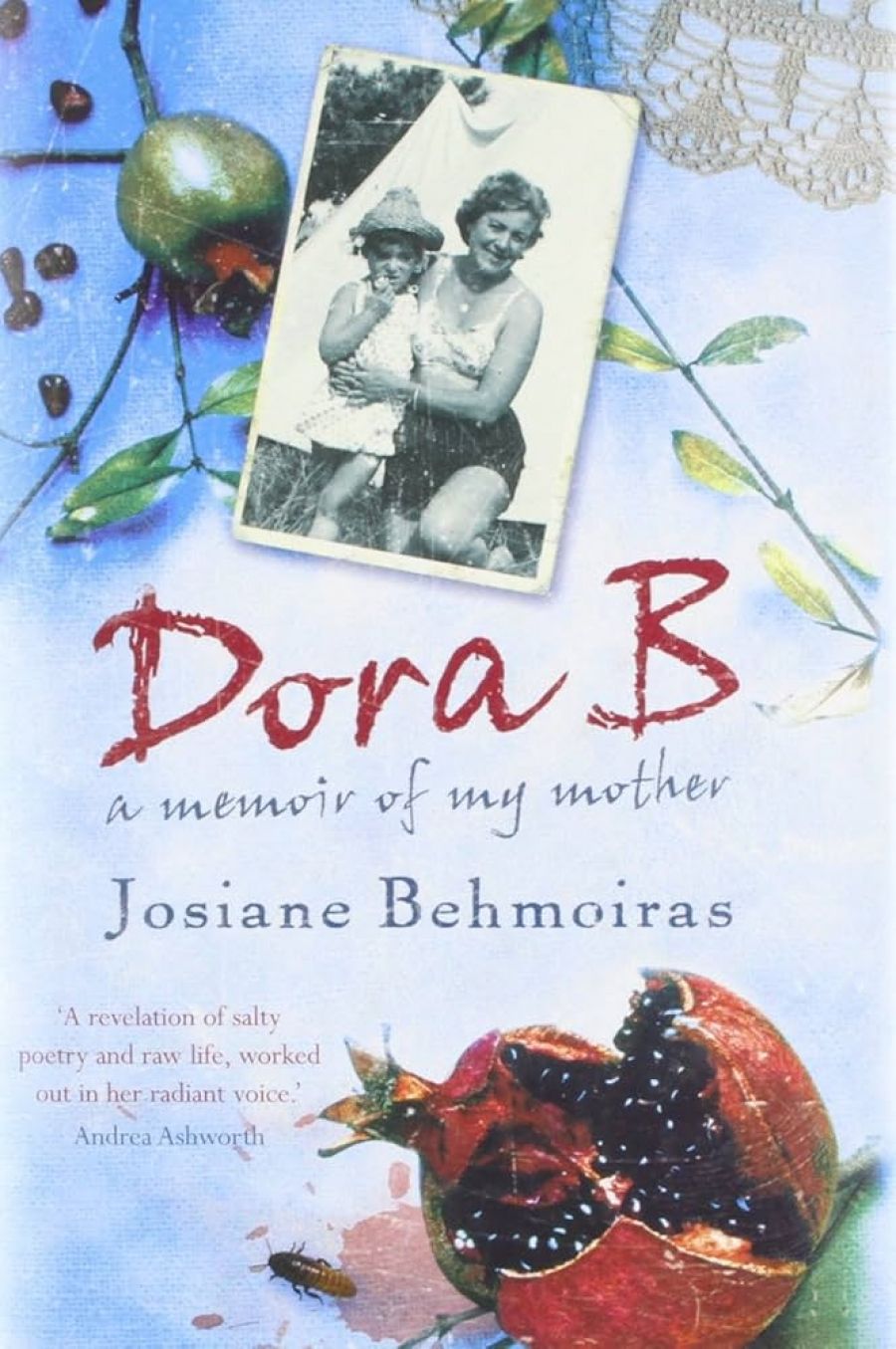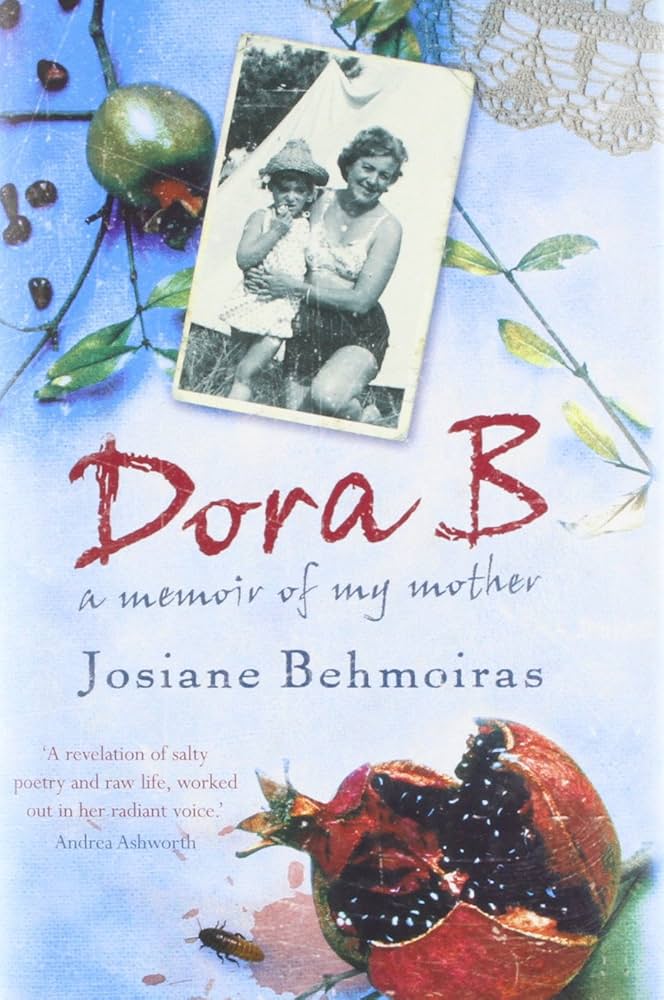
- Free Article: No
- Contents Category: Memoir
- Review Article: Yes
- Article Title: The mother as bag lady
- Online Only: No
- Custom Highlight Text:
‘One day I will have to tell (my daughter) … that her grandmother is a bag lady.’ Josiane Behmoiras’s exquisitely crafted memoir of her mother, Dora, delivers its punchline in the opening chapter. Behmoiras’s childhood and youth were shadowed by her mother’s untreated mental illness and by their descent into chronic penury, loneliness and fear. Nonetheless, the overall effect of this work is of warmth and colour, and of a keen sense of the absurd. The pleasure taken in recapturing each vignette seems to reflect its subject’s irrepressible fighting spirit. Dora fostered her daughter’s artistic gifts, as well as her capacity for love, joy and compassion.
- Book 1 Title: Dora B.
- Book 1 Subtitle: A memoir of my mother
- Book 1 Biblio: Viking, $24.95 hb, 264 pp
- Book 1 Cover Small (400 x 600):

- Book 1 Cover (800 x 1200):

Dora and Josiane’s rapturous expectations of the Promised Land soon wither in the parching heat and hostility of their new environment. For years they languish in primitive housing in a migrant camp. It is now widely acknowledged that Israel’s ma’abarot or transit camps for new immigrants were a social catastrophe. Western Ashkenazi Jews usually got out sooner than the Middle Eastern and North African Sephardis who got stuck in ghettoes of high unemployment, crime and social disadvantage.
Despite her Sephardi background and can-do spirit, Dora never fits into the rough tribal neighbourhood of the ma’abara. Petty harassment and vicious, cowardly assaults intensify her persecutory delusions. Little Josiane quickly picks up the language and makes friends. But how does a child make sense of her mother’s oddness, her suffering, and the mix of indifference, cruelty, and occasional kindness they encounter? She also begins to doubt Dora’s grip on reality.
Dora B. would be a valuable addition to the school literature syllabus because of what it reveals about the pain of migration, the underside of the multicultural ideal. Some of the most relevant themes are the burden placed on children when language barriers or illness prevent their parents from fulfilling normal social roles. But in contrast with the issues orientation of some literature written for teenagers, Dora B. has no overt agenda or didactic purpose. It is a loving exploration of a life lived hard and, in spite of many handicaps, on its own terms.
Dora decorated their asbestos shack in the ma’abara with Matissean verve. Behmoiras, who inherited her mother’s love of colour and design, painted greeting cards and posters to put food on their table. Her first real job was cutting and polishing diamonds. Later she ran a picture-framing business, then directed Israeli television documentaries. Her training has contributed to a spare, visually cued narrative, which cries out for adaptation to a screenplay. There is more show than tell in the cutting and framing. The sullen machismo of the North Africans in the ma’abara is signalled by their chunky jewellery: when Dora is punched, it is the bully’s flashy gold ring that knocks out her tooth. When Dora repels a wealthy family’s offer to help Josiane complete her schooling, the scene speaks for itself. Behmoiras does not have to spell out her thoughts on what might have been.
A deeper reason for the self-effacing form is the tangle of her emotions about her mother: ‘I have observed my mother grow older alongside me and I have recorded our life in a long accumulation of pictures that I can replay in my mind … I should have chosen still photography. My universe is merely an assortment of fragments and I don’t want to comment … on what I cannot fathom. I find my own voice weak, and I edit it out of the story.’ Behmoiras barely hints at the turmoil behind the writing. But in distancing herself, she gives voice to her subject. Her splendid portrait of her mother is a riposte to the humiliation and derision encountered in their early years. Dora B. restores the rich inner life and humanity of a bag lady.


Comments powered by CComment